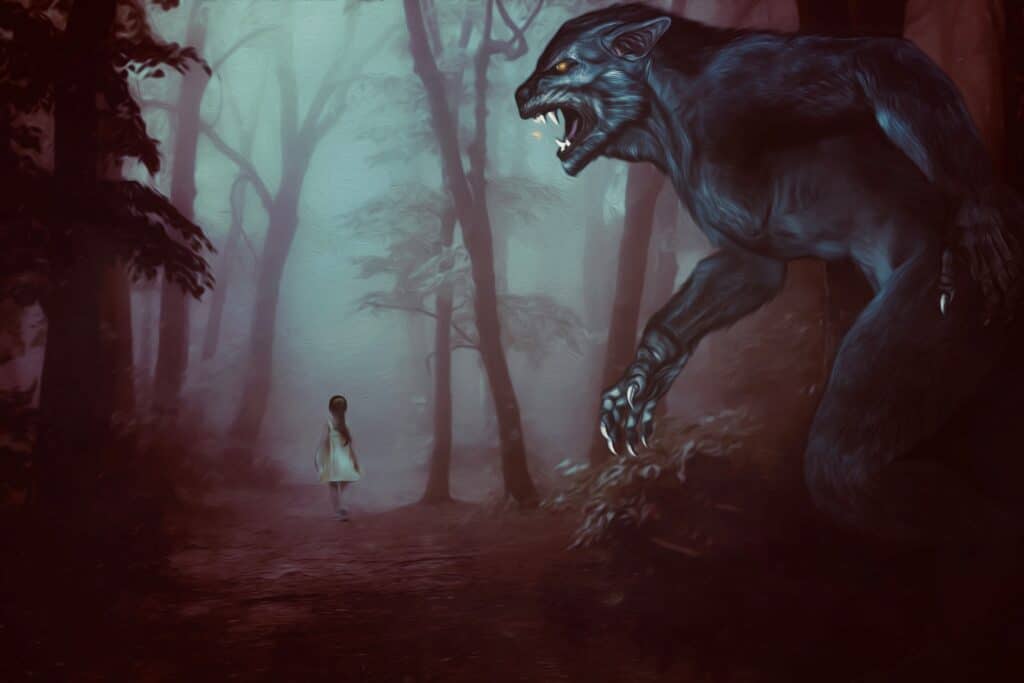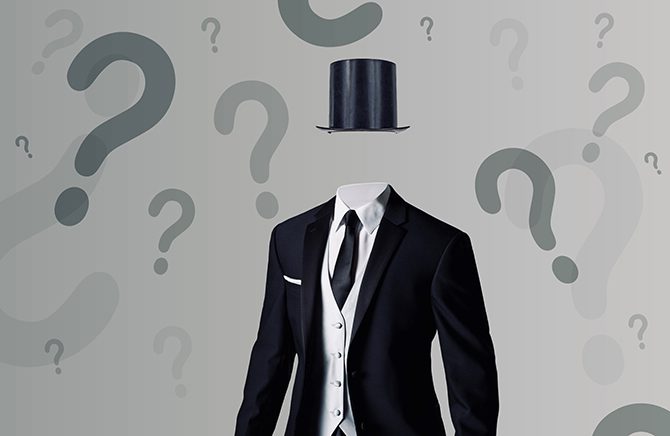
Stranger danger – how many times have you been warned about strangers? Being wary of people we do not know is as much a staple of Anglophone culture as rice and noodles are of the East Asian. Strangers are dangerous, unpredictable and bad. They are like apex bats: creatures of darkness that evolved to pray on unsuspecting earthlings both at night and daylight. Strangers might as well be sleeping upside down in groups.
And on and on.
We humans are as untrusting as we are trusting, and as cynical as we are gullible. We do not like the unknown. Yet, we are drawn to it. It makes our heart beat strong – and this is exactly how strangers make us feel, but not in a good way because we expect the worst from them; and why would we not? With all the horrific crimes we hear of in the media, it is difficult not to over-react.
You can never be too careful, but in today’s article, we will see that stranger danger advice does not provide a layer of security, but feeds on our own delusion of it. It is like taking a pill that has no medicinal effects whatsoever while thinking that it does. A placebo pill.
We will start with an attempt to define the stranger concept. Afterwards, we will talk about why stranger danger does not make any sense for several reasons, what statistics around the world say about the matter, and conclude with a few words of wisdom.
Let us begin!
Who is a stranger?
A misleadingly simple question

It may sound like an obvious question, but like everything else we do on the Taken for Granted, we do not take anything at face value.
Who is a stranger?
It is someone we ”know”, but what counts as knowing? How much do we know who we already know? Do all people we know inspire trust? After all, we are talking about stranger danger, which is all about not inspiring trust.
If we do not trust some people we know, why do we not consider them strangers? Could that mean that there are ”known” strangers and ”unknown” strangers? We can even add ”known unknown” strangers to refer to people we do not know but trust. This includes police officers, doctors, grocery store managers and others.
Now, let us explore the three categories of strangers.
Known strangers
Some of you may call them acquaintances, but I beg to disagree because we are evaluating our relationships based on trust, not personal distance. This may sound counter-intuitive because the closer the person, the higher the chance we trust them.
This is simply not true.
Take our family members, for example. They are the closest people to us. Yet, sometimes, we prefer to trust friends instead with secrets. We talked about this in detail in the ”family is not always blood” article.
Known strangers can literally be anyone we know but do not trust. This can be a neighbour, a friend or even a family member.
Unknown strangers
It is this category that most people associate the word ”stranger” with. People we have never met or meet for the first time. In popular culture, unknown strangers are the most dangerous stock of bats. Ted Bundies, Osama bin Ladens, Pablo Escobars, transnational human traffickers and attractive KGB spies that will doom the foundation of Western civilisation if they succeed in seducing your Western heart are a few examples.
Unknown strangers are also the most likely to strike while you least expect it. The good news is that this is wrong. The bad news is that the blows we are so scared of come from people we have tea and biscuits with. We will talk about this in detail later.
Known unknown strangers
These are the people who really are strangers to us, but they slip through the cracks of our skepticism without us even seeing it as such. We feel that we ”know” these people while we really do not. The danger that could come from police officers, teachers, doctors and other public servants is so well-hidden in plain sight that it slips under our stranger danger radar. Professionals like shop assistants, bar tenders, milkmen, plumbers, landlords and others can also be included under this category.
Some of you may now be wondering how known unknown strangers and known strangers differ, which I will be happy to clarify: the first are people you have an impersonal or customer/provider relationship with; the second are those you have personal ties with.
In simple terms, known unknown strangers are people we do not know but trust while known strangers are people we do know but do not trust.
As crazy as it sounds, it is true.
How is it possible that you trust someone you do not know while you distrust someone you know?
Read on to know more about how and why it happens.
Stranger danger: when it makes sense and when it does not
Stanger danger makes sense when kids are concerned

Stranger Danger advice makes sense when kids, not adults, are concerned. Why?
Why would an adult approach a kid is the question you should be asking. The justifications for an adult approaching a kid are incredibly limited compared to those for an adult approaching another.
- Adults know more about the world than kids. So, there is no reason for them to approach kids for ”advice”.
- Adults cannot be friends with kids. The gap in knowledge, physical and mental abilities is so wide there can hardly be any common ground or mutual interests. The two are also motivated by different things. So, there is no reason for adults to approach kids for ”friendship”.
- Adults approach other adults when in need because they are more likely to be useful. We are well aware that some adults can be more resourceful than others. So, there is no reason for an adult to approach a kid for ”help” while he can get it from another adult.
Stranger danger does not make sense when adults are concerned
Paranoia, paranoia..

The points above do prove that stanger danger is good advice for kids, but they are the very points that make it difficult to know why a stranger would approach an adult. It is this wide range of possibilities that overwhelm a lot of us. Why is this stranger talking to me? What does this stranger want from me? And since it is difficult to know what it is exactly, we yield to our cynicism.
While a stranger might just be looking for friendship, we wonder why he or she wants to be friends with us specifically. Does this person not already have friends? The case is worse when we realise that this Martian is trying to establish a romantic connection.
The reason why we are sometimes wary of meeting Martians is not necessarily related to their character as much as it is to our own insecurities. We are human beings. A harmless spider is enough to trigger a fight-or-flight response in a lot of us. No matter how pleasant the disposition of the Martian is, we still feel paranoid. After all, there are plenty of other people we can meet in a safe environment. That is how we feel better about our unnecessary paranoia.
Media induced paranoia

As a man, I have always wondered why we men sometimes do not hear from women after exchanging phone numbers. Correct me if I am wrong, O you fair ladies out there who might be reading this, but stranger danger might just be one of the reasons.
With media coverage of true crime stories in which women are always the fish that end up on serial killers’ pans (sometimes literally), they tend to be extra careful with strangers. Some women do not even go the extra mile of giving out their numbers out of sheer politeness, but just claim they have jealous boyfriends. It is not a horrible white lie seeing it ensures the safety of the woman and preserves the pride of the man.
Humans in general do do not want the status quo disturbed, and thanks to stranger danger advice, a lot of them have survived, right?
Left.
What if I tell you that the stranger danger measures you take have little to no impact on whether you will end up on someone’s pan or not? What if I tell you that you might have missed out on amazing friends and lovers because of your paranoia safety lock?
In the next section, I am going to prove how your stranger danger protection is a statistical delusion, and how you trust strangers with your life every day — without paying a heavy price. For now.
Stranger danger: fix the small hole, forget about the bigger hole
Bon appétit – and voyage!

Do you grow your own vegetables? If not, how can you trust a farmer you have never met with your stomach? Do you know the baker who makes your bread? How about the milkman who delivers your fresh milk every morning? What makes you think that he did not spike your milk for some reason?
How about the chef who cooks your food in your local restaurant? A lot of people throw their hands in disgust when they find a hair in their food. This serves as a reminder that you are not always that safe. The hair could have been something much worse.
Hold your breath – for I am about to upset your stomach again with another example – rats.
You will have to excuse rodents for not caring about your feelings, but they like hanging around restaurants – where they make your food. What makes you think that you are not served the plague? I cannot even begin to imagine rats and psycho chefs teaming up to cater to your taste buds..
That is enough talking about rats for today.
Real life examples
- You have dined out with your loved ones and made it in one piece? Lucky you! On 8 October 2018, a British chef cooked death to 32 hungry customers, killing one of them and leaving the rest severely ill.
- Have you been trusting your local grocery store with your stomach? Very lucky! In Germany, a maniac has been caught purposefully contaminating adult and baby food in the hope of blackmailing retailers into sending him millions of euros.
An apple a day keeps death away

Do you ”know” your doctor? Do you know any doctor? Unless you are lucky enough to have someone you trust who happens to be a doctor, why do you feel safe getting checked by one? How can you possibly trust a stranger with your body and health? How can you possibly allow a stranger in your house just because he or she is a doctor? What makes you think that the doctor is not a serial killer in an angel’s suit?
Real life examples
- Dr. Harold Shipman killed as many as 250 patients with lethal injection in Britain.
- Do you want to trust a nurse instead? Niels Högel killed 85 patients as a nurse in Germany.
Stranger with handcuffs

How about the police whose very responsibility is to protect us from stranger danger? You do not ”know” police officers. How come you trust them with your fate when they demand they give you a ride to the police station for ”questioning”? Why not get a cab to the station instead?
Oh wait, you don’t know the cab driver, too. Get your own car – if you can afford it.
Real life examples
- Serhiy Tkach, an ex-cop, killed 37 women between 1980 and his arrest in 2005. He is also suspected to have killed as many as 100 in the Soviet Union and Ukraine. He used his expertise as a cop to cover his tracks and mislead the police into making false conclusions.
- Fancy getting a ride by a police officer? Wayne Couzens, a British police officer, handcuffed Sarah Everard for ”breaching Covid rules” and threw her in the back of his car. He later raped and strangled her to death.
The bar is where I go – to get spiked

How about the bars you go to? Do you know any of the bartenders? What if the bartender in your hometown grew infatuated with you? Do you really think it would be difficult for him to spike your drink? If you are a man, do you really think it would be difficult for a psycho female bartender to spike your drink so that her psycho boyfriend drags you to his truck to finish the job?
Real life examples
- Mickey Finn was a Chicago bartender in the 80s who spiked rich customers’ drinks in order to rob them after they pass out. How did Mickey sift the rich from the poor? He promoted his ”unique” drink, which he called ”Mickey’s special”, and priced it the highest. Talk about getting wasted!
Maybe it is time to learn all that DIY stuff?

Maybe the time has come to learn how to fix that leaking sink – or anything for that matter. It can be both a money and life saver. If you have ever invited a plumber, a WIFI technician, or any other amazing problem solver without getting murdered, consider yourself – at this point, a cat with nine lives, having survived so many potential murders.
Real life examples
- A Radik Tagirov in Russia posed as a social services worker or a residential maintenance official to let unsuspecting women grant him access to their homes. He brutally ended the lives of 32 of them.
Stranger danger take-away: suits are the danger

How is it possible that we do not view the above-mentioned categories of people as strangers? You may think that such terrible incidents are hardly likely to happen to you. If so, why do you think the exact opposite when strangers approach you?
Suits.
That is right. It seems like a couple of coloured rags are enough to conquer the trust of the wariest of us.
It is not that our skepticism is allergic to wool or cotton, but to authority. After all, most of us would walk the streets looking like the day we were born if the state thought clothes inspired so much authority. It is the authority that the state confers on these clothes that command authority. If the state trusted these people, why would we not, right?
Well, it would have been true if those unifroms were worn by robots, not humans.
Humans are motivated by their own interests. While it may be true that the state’s interest behind designing uniforms is to protect citizens, the same cannot be said about those wearing them. Some police officers; for instance, signed up for the force as a last resort to employment, others — to learn how to get away with murder.
It goes without saying that there are plenty of good police officers out there who really do believe in upholding the law (when it makes sense) and protecting people, bless them, but you can never know. That is the whole point of this article.
Why familiar danger is deadlier than stranger danger
Why those who love you the most may hate you – to death

The idea that the people closest to our hearts and lives are more likely to stab us in the back is not only heartbreaking but makes sense when you do not take it for granted. People do not commit violent crimes in a vacuum. I am no police officer, but I understand why ivestigating motive is the first step in a police investigation.
The closer people are to us, the more experiences we have had shared with them. Throughout the process may unfold beautiful feelings of love, care and sacrifice — when circumstances are ideal. When they are not, well, you should expect nothing less than a disaster. It is sad but true.
We humans do not like fifty shades of grey in our relationships: we either love someone or not. Someone is either with us or against us. If someone chooses not to support us, we call it betrayal. There is no ”philosophising” it. It is the animal within us that gets hurt; it is our hearts, not minds.
Luckily, a lot of us are able to move on when we get hurt — more or less. It takes time, but it happens eventually.
For some of us, it never does, and that is when the people close to you become a serious threat.
The nature of our personal feelings fuels the rage and devastation behind personal crimes. As we shall see next, statistics prove that stranger danger should be the least of your concerns as it is almost as unlikely for a stranger to want to hurt you as it is for your doctor or cab driver.
People may lie, but statistics do not

In the Netherlands, for both male and female victims, the familiar perpetrator in most violent crime cases was a neighbour. The Dutch study also revealed that more than half of female victims knew their attacker.
The Statista Research Department in the United States concluded that most victims of violent crime knew their attacker and that strangers committed very few murders. Acquaintances, intimate partners or relatives also committed most rape and sexual assault offences. All the findings are part of the study on violent crime in the US from 2005 to 2019.
The Office for National Statistics in the UK reported that partners or ex-partners committed 33 percent of homicides against females while strangers committed 17 percent of them.
The graph turns upside down for male victims as strangers committed 35 percent of homicides while partners or ex-partners were behind only 1 percent of them. However, friends or acquaintances still committed 25 percent of homicides and strangers’ homicide rate increased by 51 percent compared to the previous year.
All in all, familiar danger is deadlier than stranger danger — and more likely to strike.
Final word on stranger danger

Stranger danger is hardly a useful advice. While it is rational to exercise caution and discernment in dealing with human beings, there is no reason for us to feel paranoid when strangers approach us for some reason. It would make more sense to be careful with how we deal with people we already know as statistics show. However, it is difficult for us to believe in statistics even when we know they are right because it is our experiences, not numbers, that leave lasting scars on our memories.
Yes, this article plainly says that unless you live in a cave, you will never be safe. No one can guarantee absolute safety, especially in an ever increasingly complex world. We sold personal safety to the devil for comfort, and there is no going back: there would not be a plumber in our house if there was no sink; gas service technician if there was no hot water; WIFI technician if the internet did not exist; grocery stores if we did not give up on agriculture for manifacturing; etc.
Let us all remember, though, that our best friends and lovers were unknown to us once. There is a first time for everything we do, and that stranger you may consider a danger could be the answer you have been looking for your entire life.
Choosing to be careful on some occasions and a little bit less so on others might be the perfect balance.

Now I’ll think that everyone wants to kill me. thanks, writer Interesting article though, keep it up!